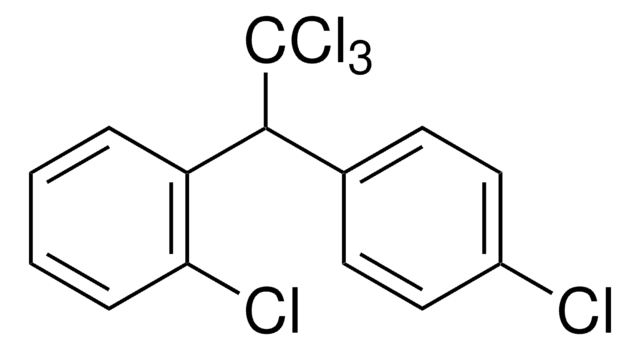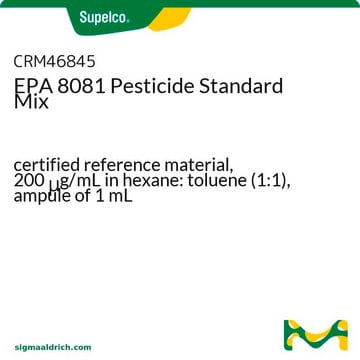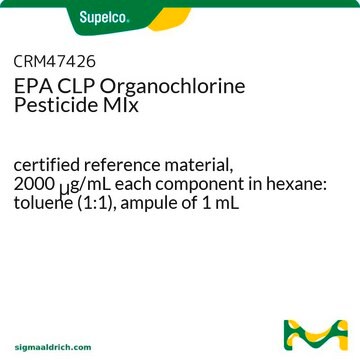40124
4,4′-DDT solution
certified reference material, 5000 μg/mL in methanol
Sinónimos:
1,1,1-Trichloro-2,2-bis(4-chlorophenyl)ethane solution, 4,4′-DDT solution
About This Item
Productos recomendados
grade
certified reference material
TraceCERT®
Quality Level
product line
TraceCERT®
CofA
current certificate can be downloaded
packaging
ampule of 1 mL
concentration
5000 μg/mL in methanol
technique(s)
HPLC: suitable
gas chromatography (GC): suitable
application(s)
agriculture
environmental
format
single component solution
storage temp.
2-8°C
SMILES string
Clc1ccc(cc1)C(c2ccc(Cl)cc2)C(Cl)(Cl)Cl
InChI
1S/C14H9Cl5/c15-11-5-1-9(2-6-11)13(14(17,18)19)10-3-7-12(16)8-4-10/h1-8,13H
InChI key
YVGGHNCTFXOJCH-UHFFFAOYSA-N
Gene Information
mouse ... Esr1(13982)
rat ... Ar(24208)
¿Está buscando productos similares? Visita Guía de comparación de productos
Application
Other Notes
Legal Information
Related product
signalword
Danger
Hazard Classifications
Acute Tox. 3 Dermal - Acute Tox. 3 Inhalation - Acute Tox. 3 Oral - Aquatic Acute 1 - Aquatic Chronic 1 - Flam. Liq. 2 - STOT SE 1
target_organs
Eyes,Central nervous system
Storage Class
3 - Flammable liquids
wgk_germany
WGK 3
flash_point_f
51.8 °F - closed cup
flash_point_c
11 °C - closed cup
Elija entre una de las versiones más recientes:
¿Ya tiene este producto?
Encuentre la documentación para los productos que ha comprado recientemente en la Biblioteca de documentos.
Nuestro equipo de científicos tiene experiencia en todas las áreas de investigación: Ciencias de la vida, Ciencia de los materiales, Síntesis química, Cromatografía, Analítica y muchas otras.
Póngase en contacto con el Servicio técnico











